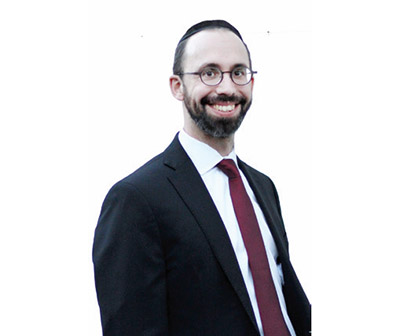
Yehuda was struggling with his recent interactions with the viceroy of Egypt (really his brother Yosef). Nothing was adding up. The interrogations, the returned money in their sacks, the silver goblet that was found in Binyamin’s sack. Nothing made sense. Clearly Hashem was orchestrating the whole situation, but for what purpose? Yehuda knew that everything Hashem does is for the good, but he was struggling to find the good in the current situation, which had turned from bad to worse to catastrophic. All the brothers were now to be slaves to the viceroy because the stolen silver goblet was found in the sack of Binyamin.
The Sfas Emes explains the opening verse of Parshas Vayigash very differently from the literal translation. When it says “Vayigash eilav Yehuda”—Yehuda approached him, seemingly referring to the viceroy, it means he was really approaching Hashem, not the viceroy. Similarly, the Zohar explains that when Queen Esther approached King Achashverosh, her requests were really directed to Hashem, not the flesh and blood king. The name Yehuda means to thank. Yehuda was working on this quality but he couldn’t see anything to thank Hashem for in the current disastrous situation. He was struggling, but after Yosef revealed himself, Hashem’s plan became clear!
Often, seemingly trivial irritating events occur and we don’t understand why. Our focus needs to change; we must review the events to see how Hashem has helped us and thank Him for it. The following occurred to me a year ago. It was Thursday night at 10:40 p.m. I had just finished giving my Thursday night shiur on the parsha (posted on Torah Anytime for all to hear), when I received a call from my wife. “Where are you?” she asked. I sensed the urgency in her tone of voice. “I’m in yeshiva,” I responded. “What’s going on?” My wife replied, “The kosher supermarket closes at 11. I want you to quickly come home and pick up a few items that I want to return, and I want you to pick up a few items from the store for Shabbos. It can’t wait till tomorrow.”
At that point, I was exhausted from the week and still had a few very timely calls to make. I was under more pressure than usual, overseeing a program for teens that had a retreat for that Shabbos. The retreat would cost $7,000, and I was still short $1,500. Somehow, I needed to come up with that money in the next half a day! It was also freezing that night and I was not in the mood to run out this late to the supermarket. However, the tone of my wife’s voice made it clear this was important to her. I rushed home and made it to the store a few minutes before closing. While standing in line, I saw a person whom I was trying to contact for a few weeks to help sponsor the retreat. I had sent emails, texts and voicemails with no response. Now he was standing in front of me live at the checkout line!! I felt a little awkward, but after he paid, I asked to speak to him for one minute. “Sure,” he replied. I told him about the program and the upcoming Shabbos retreat. I explained we were still short $1,500. He immediately took out his checkbook and paid the whole balance on the spot.
It was then that I understood the urgency from my wife to run to the supermarket. Next time your wife asks you to do something, don’t walk…run… because you never know what’s in store for you!
The Chidushei Harim says Jews are called Yehudim from its root of “hoda’a”—to give thanks, because the essence of every Jew is to give thanks to Hashem, his Creator and his Guardian. Every week, we enter Shabbos reciting “mizmor shir l’yom haShabbos tov lehodos laHashem”—the “song of Shabbos” is that it’s good to thank Hashem. Why precisely on Shabbos? We thank Hashem every day in every Shemoneh Esrei, but on Shabbos we take time to stop and think. The word Shabbos means to rest; it also means to stop. We have time to stop and reflect for a few moments, to review the events of the week and recognize the kindnesses Hashem has done for us.
Other nations say to “take time to smell the roses.” It’s not bad advice. But the nation of Israel takes time to thank the Creator of the roses for the opportunity to smell and savor them and all His countless gifts from which we benefit every moment of our lives. Good Shabbos!
By Rabbi Baruch Bodenheim
Rabbi Baruch Bodenheim is the associate rosh yeshiva of Passaic Torah Institute (PTI)/Yeshiva Ner Boruch. PTI has attracted people from all over northern New Jersey, including Teaneck, Bergenfield, Paramus, Rockaway and Fair Lawn. He initiated and continues to lead a full multi-level Gemara learning program in the evenings, gives Halacha and hashkafa shiurim on Shabbos and, more recently, has spread out beyond PTI to begin a weekly beis midrash program with in-depth chavrusa learning in both Livingston and Springfield.













